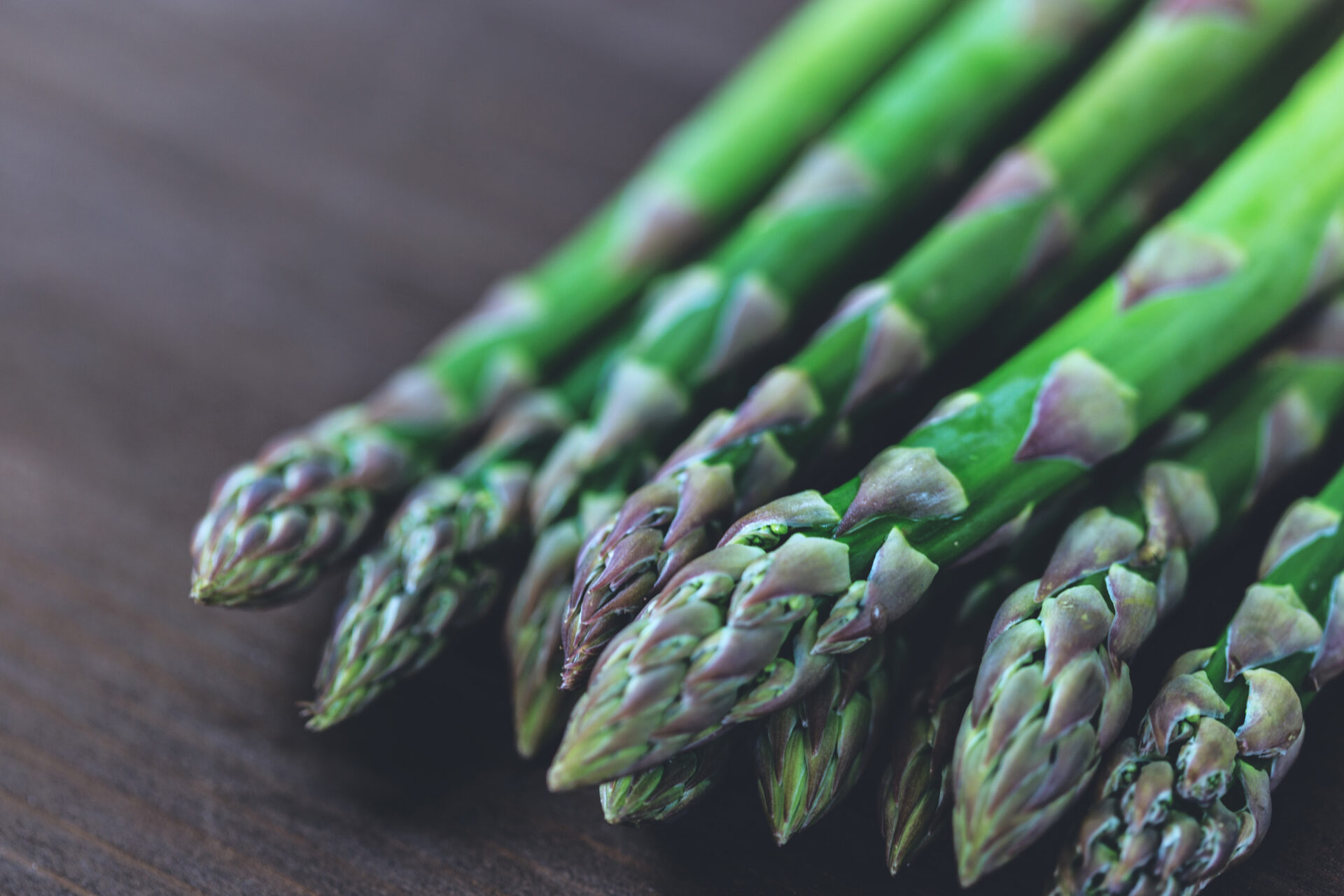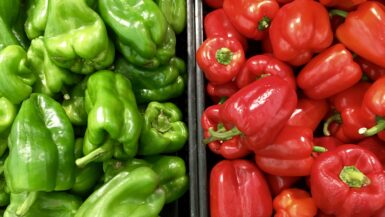Salt is an essential part of our diet, but consuming too much of it can lead to a range of health issues. High-salt diets are becoming increasingly common, with many people unaware of the risks associated with excessive salt intake. In this article, we will explore the dangers of high-salt diets and the impact they can have on our health. From high blood pressure to increased risk of heart disease, we will examine the potential consequences of consuming too much salt and provide tips on how to reduce your salt intake and maintain a healthy diet.
The Impact of High-Salt Diets on Blood Pressure
Consuming too much salt can have a significant impact on blood pressure levels. Sodium, a key component of salt, can cause the body to retain excess water which can lead to an increase in blood volume and pressure on the blood vessel walls. This can put extra strain on the heart, arteries, and other organs in the body.
High blood pressure, or hypertension, is a common health problem that affects millions of people worldwide. It is a significant risk factor for heart disease, stroke, and kidney disease. Studies have shown that reducing salt intake can help lower blood pressure levels and reduce the risk of these health problems.
The American Heart Association recommends that adults consume no more than 2,300 milligrams of sodium per day, which is about one teaspoon of salt. However, most people consume much more than this amount, with some estimates suggesting that the average daily intake of sodium in the United States is around 3,400 milligrams.
Reducing salt intake can be challenging, especially since salt is a common ingredient in many foods. However, making small changes to your diet, such as avoiding processed foods, eating more fresh fruits and vegetables, and using herbs and spices to flavor your meals instead of salt, can make a big difference in your overall health and well-being.
The Link Between High-Salt Diets and Heart Disease
In addition to its impact on blood pressure levels, high salt intake has also been linked to an increased risk of heart disease. The excess sodium in the body can cause the blood vessels to become stiff and narrow, making it harder for blood to flow freely. This can lead to an increased risk of heart attacks, strokes, and other cardiovascular problems.
Studies have shown that reducing salt intake can help lower the risk of heart disease. A review of 13 studies found that reducing salt intake by just 1,000 milligrams per day could lead to a 23% reduction in the risk of heart disease. Additionally, a study published in the New England Journal of Medicine found that individuals who consumed less than 3,000 milligrams of sodium per day had a lower risk of heart disease than those who consumed more.
It’s important to note that many processed foods, such as canned soups, frozen meals, and snack foods, can be high in sodium. It’s essential to read food labels carefully and choose low-sodium options whenever possible. Eating a diet rich in fruits, vegetables, whole grains, and lean proteins can also help reduce the risk of heart disease.
Reducing salt intake can be challenging, but there are many tips and tricks that can help. Cooking at home and avoiding eating out can help you control the amount of salt in your meals. Using herbs and spices to flavor your food instead of salt can also make a big difference. By making small changes to your diet and lifestyle, you can help reduce your risk of heart disease and improve your overall health and well-being.
The Role of High-Salt Diets in Kidney Disease
The kidneys play a crucial role in regulating the body’s fluid and electrolyte balance. Too much salt in the diet can put extra strain on the kidneys and increase the risk of kidney disease.
Research has shown that a high-salt diet can lead to kidney damage, including the development of kidney stones and a decline in kidney function. A study published in the American Journal of Kidney Diseases found that individuals who consumed a high-salt diet had a higher risk of developing chronic kidney disease than those who consumed less salt.
Additionally, individuals with existing kidney disease may be more sensitive to the effects of salt on the body. Consuming too much salt can lead to an increase in blood pressure and fluid retention, which can further damage the kidneys.
Reducing salt intake can help protect the kidneys and reduce the risk of kidney disease. The National Kidney Foundation recommends that individuals with kidney disease consume no more than 2,000 milligrams of sodium per day. Eating a diet rich in fruits, vegetables, whole grains, and lean proteins can also help protect the kidneys and improve overall health.
It’s essential to be aware of hidden sources of salt in the diet, such as processed foods and condiments, and to read food labels carefully. Using herbs and spices to flavor food instead of salt can also help reduce salt intake. By making small changes to your diet and lifestyle, you can help protect your kidneys and improve your overall health and well-being.
The Effects of High-Salt Diets on Brain Health
While the impact of high salt intake on blood pressure and heart health is well-known, its effects on brain health are less discussed. However, research has shown that consuming too much salt can have negative effects on brain function.
A study published in the journal Nature Neuroscience found that a high-salt diet can impair cognitive function and lead to memory problems in mice. Additionally, a study published in the journal Hypertension found that individuals with high blood pressure, often caused by excessive salt intake, had a higher risk of cognitive decline and dementia.
The exact mechanisms through which salt affects the brain are not yet fully understood. However, it is believed that high salt intake can lead to inflammation and oxidative stress, both of which can damage brain cells and impair cognitive function.
Reducing salt intake may help protect brain health and reduce the risk of cognitive decline. Eating a diet rich in fruits, vegetables, whole grains, and lean proteins can help provide the nutrients and antioxidants needed to support brain function. Additionally, engaging in regular exercise and getting enough sleep can also help protect brain health.
It’s important to be aware of hidden sources of salt in the diet, such as processed foods and restaurant meals. Reading food labels carefully and choosing low-sodium options whenever possible can help reduce salt intake and protect brain health. By making small changes to your diet and lifestyle, you can help protect your brain and improve your overall health and well-being.
The Connection Between High-Salt Diets and Stomach Cancer
Stomach cancer is a serious health problem that affects millions of people worldwide. While there are many factors that can contribute to the development of stomach cancer, research has shown that a high-salt diet may be one of them.
A study published in the journal Gastric Cancer found that consuming a high-salt diet was associated with an increased risk of stomach cancer. Additionally, a study published in the journal Cancer Causes and Control found that individuals who consumed pickled foods, which are often high in salt, had a higher risk of stomach cancer.
The exact mechanisms through which salt contributes to the development of stomach cancer are not yet fully understood. However, it is believed that high salt intake can lead to inflammation and damage to the stomach lining, which can increase the risk of cancer.
Reducing salt intake may help reduce the risk of stomach cancer. Eating a diet rich in fruits, vegetables, and whole grains can help provide the nutrients and antioxidants needed to protect against cancer. Additionally, avoiding processed foods and pickled foods, which are often high in salt, can also help reduce salt intake and protect against cancer.
It’s important to be aware of hidden sources of salt in the diet, such as condiments and sauces, and to read food labels carefully. Choosing low-sodium options whenever possible can help reduce salt intake and protect against stomach cancer. By making small changes to your diet and lifestyle, you can help protect against cancer and improve your overall health and well-being.
The Hidden Sources of Salt in Our Diets
While it’s easy to identify obvious sources of salt in our diets, such as potato chips and pretzels, there are many hidden sources of salt that can contribute to excessive salt intake.
One of the most significant sources of hidden salt is processed foods. Many packaged foods, such as canned soups, frozen meals, and snack foods, are high in sodium. Additionally, many condiments, such as ketchup, soy sauce, and salad dressings, can be high in salt. Reading food labels carefully can help identify these hidden sources of salt and make it easier to reduce salt intake.
Another source of hidden salt is restaurant meals. Many restaurant meals are high in sodium, often due to the use of salt in cooking and the addition of salty sauces and condiments. Choosing low-sodium options when eating out can help reduce salt intake.
Finally, it’s essential to be aware of the sodium content of natural foods. Some foods, such as cheese, cured meats, and olives, are naturally high in sodium. While these foods can be a healthy part of a balanced diet, it’s important to be mindful of portion sizes and overall salt intake.
Reducing salt intake can be challenging, but there are many tips and tricks that can help. Cooking at home and avoiding eating out can help you control the amount of salt in your meals. Using herbs and spices to flavor your food instead of salt can also make a big difference. By being aware of hidden sources of salt in the diet and making small changes to your diet and lifestyle, you can reduce salt intake and improve your overall health and well-being.
Tips for Reducing Salt Intake and Maintaining a Healthy Diet
Reducing salt intake can be challenging, especially since salt is a common ingredient in many foods. However, making small changes to your diet and lifestyle can help reduce salt intake and maintain a healthy diet.
Here are some tips for reducing salt intake:
1. Cook at home
Cooking at home can help you control the amount of salt in your meals. Use fresh ingredients whenever possible and avoid processed foods, which are often high in sodium.
2. Use herbs and spices
Instead of using salt to flavor your food, try using herbs and spices. Garlic, ginger, rosemary, thyme, and oregano are all great options that can add flavor to your meals without adding salt.
3. Read food labels
Reading food labels can help you identify hidden sources of salt in your diet. Look for low-sodium options whenever possible and avoid foods that are high in sodium.
4. Eat a diet rich in fruits and vegetables
Fruits and vegetables are naturally low in sodium and can help provide the nutrients and antioxidants needed to maintain a healthy diet. Aim to eat a variety of fruits and vegetables every day.
5. Avoid processed and packaged foods
Processed and packaged foods are often high in sodium. Avoiding these foods whenever possible can help reduce salt intake and maintain a healthy diet.
6. Choose low-sodium options when eating out
When eating out, choose low-sodium options whenever possible. Avoid foods that are fried or served in salty sauces and ask for dressings and sauces on the side.
By making small changes to your diet and lifestyle, you can help reduce salt intake and maintain a healthy diet. Remember, reducing salt intake is just one part of a healthy lifestyle that includes regular exercise, getting enough sleep, and avoiding smoking and excessive alcohol consumption.
The Benefits of a Low-Salt Diet for Overall Health and Well-being
A low-salt diet is one that limits the intake of sodium to less than 2,300 milligrams per day, which is the recommended daily intake for most adults. This type of diet has numerous benefits for overall health and well-being.
Reduced Risk of High Blood Pressure
One of the most significant benefits of a low-salt diet is a reduced risk of high blood pressure. When we consume too much salt, our bodies retain more water, which increases blood volume and puts extra pressure on our blood vessels. Over time, this can lead to hypertension, or high blood pressure, which is a major risk factor for heart disease, stroke, and kidney disease. By reducing our salt intake, we can help to lower our blood pressure and reduce our risk of these serious health problems.
Better Heart Health
In addition to reducing our risk of high blood pressure, a low-salt diet can also improve our heart health in other ways. Studies have shown that reducing salt intake can help to lower LDL (bad) cholesterol levels, which can help to prevent heart disease. A low-salt diet can also reduce the risk of heart failure, especially in people who are already at risk due to other health conditions.
Improved Kidney Function
Reducing salt intake can also help to improve kidney function, especially in people who already have kidney disease. When we consume too much salt, our kidneys have to work harder to remove the excess sodium from our bodies. Over time, this can lead to damage to the kidneys and a decline in their function. By reducing salt intake, we can help to ease the burden on our kidneys and improve their overall health.
Better Brain Health
Recent studies have suggested that a high-salt diet may be linked to cognitive decline and an increased risk of dementia. By reducing our salt intake, we can help to protect our brain health and reduce our risk of these serious conditions.
Reduced Risk of Stomach Cancer
Studies have also shown that a high-salt diet may increase the risk of stomach cancer, especially in people who have a family history of the disease. By reducing our salt intake, we can help to reduce our risk of this deadly cancer.
Tips for Reducing Salt Intake
Reducing salt intake can be challenging, especially if you’re used to consuming a lot of processed and packaged foods. However, there are some easy tips you can follow to help reduce your salt intake:
- Choose fresh, whole foods whenever possible
- Avoid processed and packaged foods
- Use herbs and spices to add flavor to your meals instead of salt
- Read food labels carefully and choose low-salt or no-salt-added options
By following these tips and making simple changes to your diet, you can reap the many benefits of a low-salt diet for overall health and well-being.
The Impact of High-Salt Diets on Children’s Health
Children are not exempt from the dangers of high-salt diets. In fact, consuming too much salt during childhood can have a significant impact on their health and well-being in both the short and long term.
Increased Risk of High Blood Pressure
Just like adults, children who consume too much salt are at an increased risk of developing high blood pressure. This can lead to a range of health problems, including heart disease, stroke, and kidney disease. High blood pressure can also cause damage to the blood vessels in the eyes and brain, which can lead to vision problems and cognitive impairment.
Poor Eating Habits
Children who consume a lot of salty foods may develop poor eating habits that can last into adulthood. This can lead to a range of health problems, including obesity, diabetes, and heart disease. Additionally, children who consume a lot of salty foods may be less likely to eat a variety of healthy foods, which can lead to nutrient deficiencies and other health problems.
Increased Risk of Stomach Cancer
Studies have shown that consuming a lot of salt during childhood may increase the risk of stomach cancer later in life. This is thought to be because consuming too much salt can damage the lining of the stomach and increase inflammation, which can increase the risk of cancer.
Tips for Reducing Salt Intake in Children
Reducing salt intake in children can be a challenge, especially if they are used to consuming a lot of salty foods. However, there are some simple tips that parents can follow to help reduce their children’s salt intake:
- Choose fresh, whole foods whenever possible
- Avoid processed and packaged foods
- Read food labels carefully and choose low-salt or no-salt-added options
- Use herbs and spices to add flavor to meals instead of salt
- Limit the amount of salty snacks, such as chips and pretzels, that children consume
By following these tips and making simple changes to their children’s diet, parents can help to reduce the risks associated with high-salt diets and promote better health and well-being.





Leave a reply